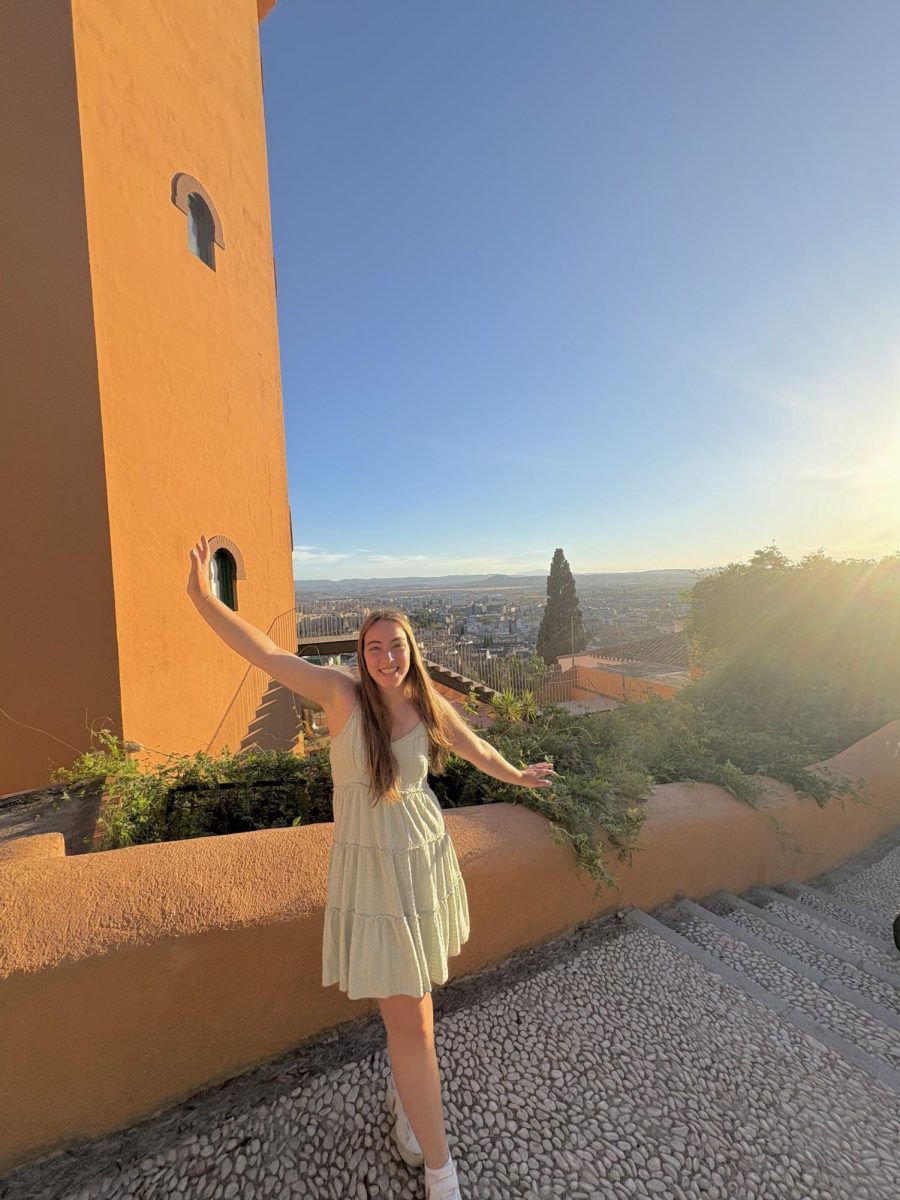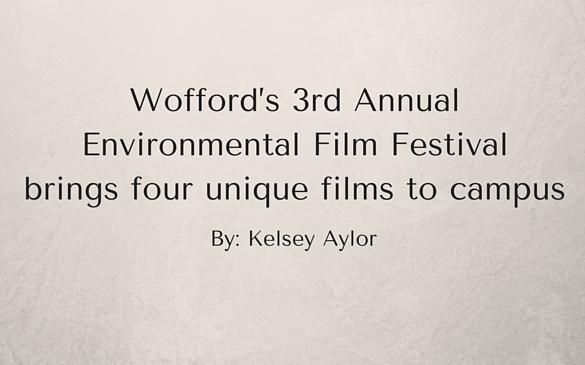By: Kelsey Aylor, Staff Writer
From Nov. 16-19, the 3rd Annual Environmental Film Fest will allow Wofford students to engage with the campus community regarding environmental issues with the hopes of increasing awareness and appreciation. The festival has been organized and facilitated by Associate Professor of English John Ware’s humanities course, which focuses on environmental film. The students in this course have worked in groups to select films to present and will answer questions following the screenings.
“I think the students have a great ability to select the films,” says Ware. “Often, a group will screen a film that I may not have seen or studied before, so I get introduced to material that I sometimes have incorporated into future years.”
Ware has long been interested in representations of the environment in literature and various different discourses, but in recent years, he has been specifically interested in the film aspect.
“I’ve come to see environmental film as a great example of a number of things that can merge different topics and make a compelling argument for a general audience,” says Ware. “Thus, my humanities course has been honed to specifically feature films, and I think the festival fits nicely into this course because it allows students to direct their own ideas and interests to the campus community.”
Savannah Medford, ’19, is currently in the Environmental Film class, and her group will be airing the film “Project Wild Thing.” Medford has an interest in the environment and learning about new and pertinent issues.
“I believe my group’s film shows the biggest root to our environmental problems as it focuses on children, our future and the concept of being reintroduced into nature,” says Medford. “I’m very excited for the festival because I am looking forward to being able to spread the word about some issues that affect us all.”
Noah Ameris, ’18, participated last year in the 2nd annual film fest and was a member of the group that aired “Black Fish.” According to Ware, this film was one of the most successful to be screened.
“’Black Fish’ has had a lasting impact both through its screening last year and in our culture in general. It’s a good example of how environmental films can put together a compelling argument that can have a powerful affect both in terms of how people behave and in terms of economic factors,” says Ware.
Ameris is thankful for her ability to participate in the class and the film screening.
“Our film was very interesting to me because it was a hybrid between environmental issues, specifically animal abuse, policy and the effect of the media,” says Ameris. “The most rewarding part of the process was the opportunity that we had as students to involve not only our school community, but the larger community of Spartanburg. As a festival, we were able to share dialogue with others that may not otherwise come into the public sphere.”
Medford, in preparation for this year’s screenings, is anticipating the potential impact.
“If anything, at least people will be more environmentally educated, which is a step in the right direction. The environment and nature is so much bigger than ourselves and, as a class, we hope that after viewing these films people will be able to recognize that,” says Medford. “What we do now can affect our future, and it’s up to us to decide whether it’s in a positive or negative way.”
Ware hopes to continue the film festival in future years with the support of Wofford’s Cultural Affairs Committee.
“I think these films can really resonate with the audiences, and students have really enjoyed being able to have a direct medium of contact with the community. Whether students are interested in environmental affairs, or the film and media side of this class, I think it has been really rewarding for them.”


























